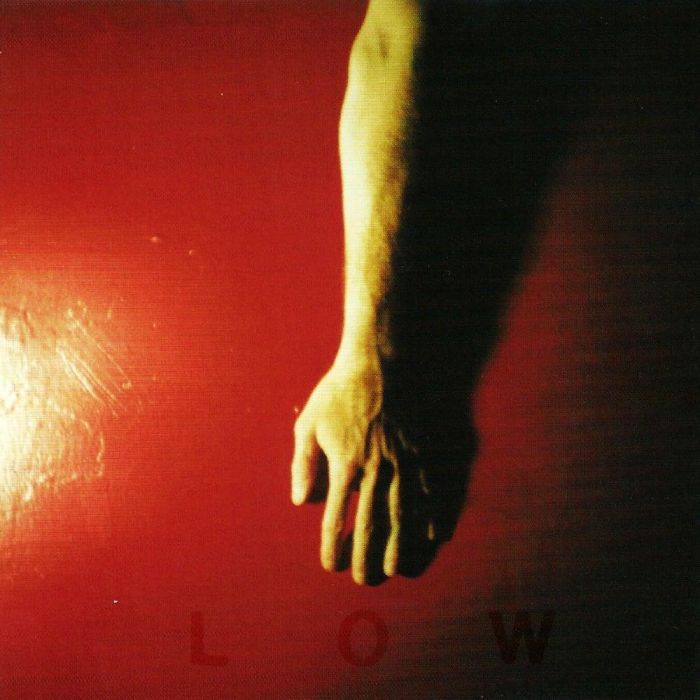Trust by Low (Review)

After 5 studio albums and many EPs, singles, and collaborations, you’d think Low’s schtick would be getting old by now. Sure, they’ve added new elements with each recording, but the basic premise — slower than molasses melodies, thundering basslines, and the beautifully fragile harmonies of Alan Sparhawk and Mimi Parker — has always remained the same. Truth be told, I had started wondering if Low’s music hadn’t run its course. Recent albums, like Things We Lost In The Fire, were fine enough in places, and I eventually warmed to them. But they seemed to lack the hold that Low’s earliest recordings still have on me.
But without a doubt, Trust is the trio’s finest effort in years, a beautiful delivery on all of the promises and experiments that they’ve attempted on recent albums. Furthermore, its use of sparse, harrowing atmospherics achieves a mood reminiscent of Low’s finest moments (e.g., I Could Live in Hope, The Curtain Hits the Cast).
Only Low would have the foresight to begin their latest with the 7-minute “(That’s How We Sing) Amazing Grace.” Like all of Low’s best songs, it starts off on a desolate note, all eerie chimes and a strummed guitar with seemingly infinite reverb. Within the first minute, you’re immediately forced to slow down to Low’s pace, where a note can be stretched for minutes on end and a single chord change takes on great importance. It’s immediately like listening to a different Low, a deeper and richer Low, and despite the song’s funereal pace, I couldn’t help but grin from ear to ear.
But lest you get too settled, the distorted bass that opens up “Canada” comes completely out of left field. And then you realize the whole track is going to be like this, a raucous jam that sounds more Primal Scream than Galaxie 500, as if elements of Sparhawk and bassist Zak Sally’s noisier side projects (The Black-Eyed Snakes and Enemymine, respectively) had somehow leaked into the Trust sessions. But then those vocals come in, the cornerstone of every one of Low’s endeavors, and you understand the meaning behind the phrase that Kranky’s marketing pundits came up with for Trust: “This record grazes you with a brick then knocks you over with a feather.”
Although previous albums saw the inclusion of string arrangements, it’s nice to hear Low rediscover their own atmospherics. Anyone who has heard tracks like “Do You Know How To Waltz?” knows this is a group truly capable of taking a handful of notes and building a symphony around them. Trust is ripe with those moments — the atmospherics that open and close the album are perfect examples, with the building finale of “Shots & Ladders” especially priceless.
Trust might also contain some of Low’s darkest moments. The dense, booming pace of “Candy Girl,” a Labradford-esque piece that displays Low’s time-stretching powers to their fullest effect, is only the first of them. “The Lamb“ ‘s lyrics (which contains much of the album’s cryptic religious imagery) are solemn enough, with Sparhawk intoning “I am the lamb and I am a dead man.” But when the foot stomps take up their solemn rhythm, it sounds like nothing so much as our Savior’s long, tragic march up Golgotha way.
But “John Prine” takes the cake. Hearing Sparhawk sing “Now I want to see the blood/I want to make them pay/Yeah, I can see the day” is slightly hair-raising. But the spectral voices that sigh “sha la la la la,” call-and-response style, at the song’s end create the album’s most chill-inducing moment. It’s enough to make you wonder if the trio suffers more than just a bit of cabin fever during the long Minnesotan winters.
However, the band thankfully provides us with some moments of respite. “Little Argument With Myself” quickly makes up for any frights you might’ve sustained from “John Prine,” with stunning vocals from Sparhawk and Parker. “In The Drugs” and “The La La La Song” are both fine acoustic ballads, with the latter making for one of the album’s calmest and saddest moments. And Parker’s voice has never been deeper or more fragile than on “Point of Disgust,” with nothing but a sparse piano to accompany her.
The range of sounds and styles on Trust is revelatory. Past efforts had seen the trio expand their palette, moving beyond the slowcore label that they practically defined. But such experiments could make for slightly fractured listenings. Trust is the first album where all of the varying moods — the murderous gloom of “John Prine,” the simple charm of “Point of Disgust,” the radiant ambience of “Shots & Ladders” — still maintain a sense of completeness and unity.
Trust feels like a rediscovery for me. As much as I love Low, and as much as their music has impacted me, I had begun to wonder if the only reason I was buying Low records was because they were Low records. I had begun to wonder if I’d become that kind of fan. Trust, however, is wholly different, an experience that reminds me of why I loved, and continue to love, their music so much.